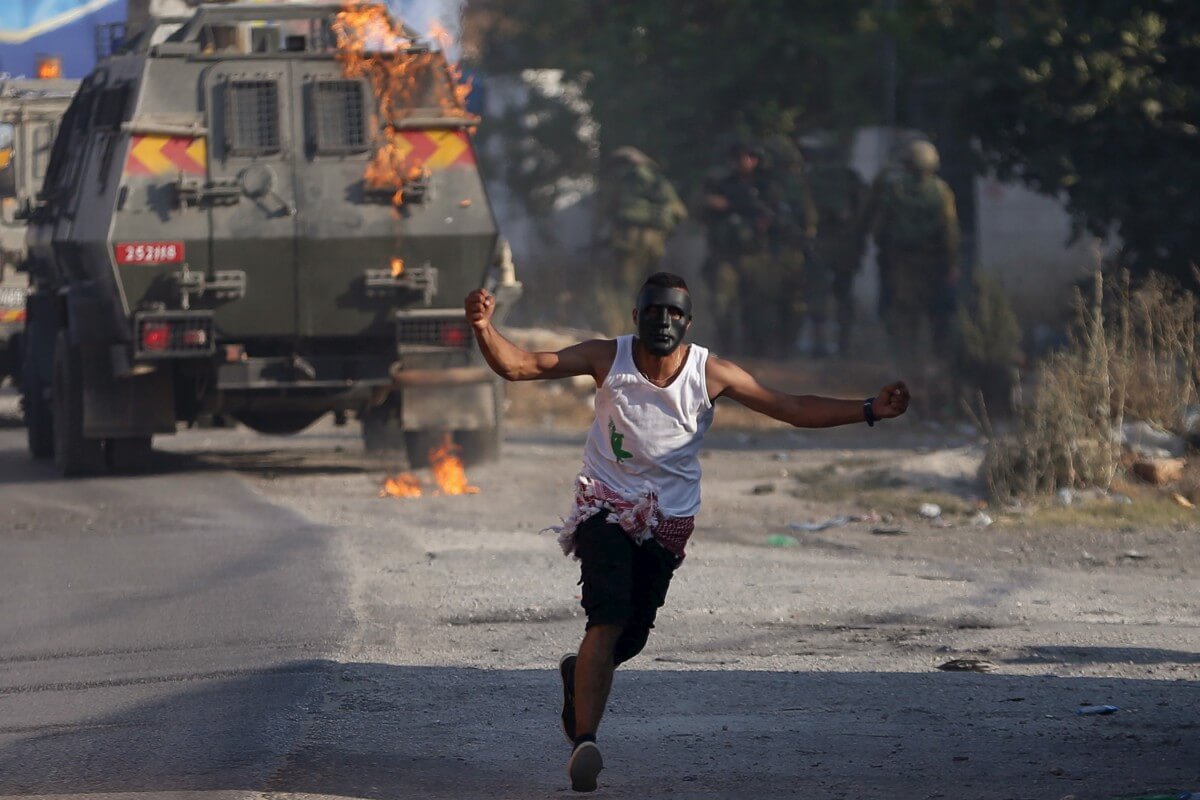A Palestinian resident of a refugee camp in the Gaza Strip has become suddenly aware of the substandard conditions in which he lives after logging on to Facebook. Now he has been radicalized, just as Israeli Prime Minister Benjamin Netanyahu has warned, going so far as to express support for a boycott intended to isolate the Jewish state nonviolently.
Samih al-Masri of al-Shati Camp said in an interview on April 1st that several trips to the local internet cafe had turned his world upside down, offering a window into life outside the 360-square-kilometer enclave. “My family has loved Gaza ever since my grandparents were driven here from Jaffa by Zionist forces in 1948,” said Masri, 36. “It’s the only home we know. But now that I realize not every place is enclosed by a fence, with only three highly restricted points of access, I’m pretty pissed off.”
On Facebook, he explained, “you can click through someone’s photos and see them in all sorts of different locales. I’ve never been outside of Gaza, which isn’t allowed to have a seaport or an airport. That doesn’t seem fair to me, anymore.”
Masri, who has always loved the sea, was particularly piqued by photographs showing a friend of a friend on a deep-water fishing trip off the coast of California. “This guy caught the biggest fish I’ve ever seen, I mean it was monstrous. He must have been way further offshore than six nautical miles for a catch like that, and there wasn’t a gunboat in sight! He probably didn’t get shot at even once.”
Masri worked on a fishing boat for several months, before the Israeli navy sunk it. “It sucked,” he recalled, “but I figured, them’s the breaks. How was I supposed to know people elsewhere get to fish wherever they want, just for fucking fun?”
Masri always knew life in the Strip wasn’t exactly perfect. In 1971, his family became refugees twice over when Israeli authorities demolished thousands of homes in Gaza in order to tighten their grip on the territory. During the first intifada, when he was nine years-old, Masri was severely beaten by an Israeli soldier at a demonstration. “I always figured he was just following orders—‘Break their bones,’ Rabin said—so I gave him a pass.” Now, Masri said, on account of the memes, he was reevaluating everything.
Like the time in 2002 when his close friend Fatima was paralyzed as an Israeli missile struck the nearby car of a wanted militant. “Bad luck, I told her.” Masri shook his head. “Maybe the bad luck was being born here.”
Before visiting Facebook, Masri said, “I was pretty content with life. I love my wife, our kids are great, I’m unemployed due to decades of economic strangulation. But then I saw pics from an American Thanksgiving dinner, and it looks like not everyone has to rely on UN aid just to put food on the table.”
“It got me wondering,” he went on, “what else is different? Do other people not hear a near-constant buzzing of drones overhead, or sometimes sonic booms in the middle of the night?” A certain sarcastic bitterness crept into Masri’s tone. “That must be fairly fantastic!”

With respect to Israel, Masri had always assumed the country’s democratically-elected leaders were mostly unaware of the more unpleasant aspects of life in Gaza. “They’re not allowed to come here, right? That’s the law. So I thought, there’s no way they know.” But several memes on Facebook, combining photographs of officials with inflammatory quotations, had changed his mind. “I guess it isn’t a coincidence we’re penned up in here like animals,” Masri suggested. “They say we’re ‘beasts of prey,’ and our children are ‘little snakes.’” He paused, a shade of doubt passing over his face. “Maybe it’s not really an accident that their army kills us by the score every two years or so?”
Despite the phenomenon of exhortations to violence on Palestinian social media, Masri denied any desire to stab anyone, as others have done. “Anyway, I’d be shot on sight if I approached the border with Israel. Buffer zones, right? How big’s the one where you live?”
This correspondent was silent for a moment.
“Oh, really!” Masri exclaimed. “Are you shitting me?!”
This seemed to be the last straw. “You know what, I never understood it before, but now I get the whole boycott thing.” Masri was referring to the Boycott, Divestment and Sanctions movement, or BDS. “Maybe it’s not about anti-Semitism, as I’ve always previously believed.”
Masri paused, looking through the glassless window of his half-ruined home, damaged by an Israeli missile during the Gaza War of 2014. He still comes here sometimes, when the tent in which his family has lived for nearly two years becomes too stifling. “I’m starting to think the world doesn’t care so much about Palestinians,” he sighed, “as though somehow we’re less important than other people. But why would that be?”



My first reaction when I clicked here and saw the Onion- esque April Fools stories was to groan. But I read a couple and changed my mind. This one especially was brilliant. Makes the point perfectly. Maybe the others are even better– gotta read them.
outstanding. Awesome interview combined with this song, maybe someone will be moved.
https://www.youtube.com/watch?v=WQuh4_zDBvo
Bang on!
Well done, Eamon and Samih.
I have a question for Samih, though. Where’s the Islamic element in your radicalisation? Is it really all about fish and fences and bombs and stuff? Are you sure someone in a hennaed beard didn’t tell you al-Aqsa was in danger or something? I hear that’s the real reason Palestinians have been getting all incited lately. Thanks in advance.
Brilliant!!